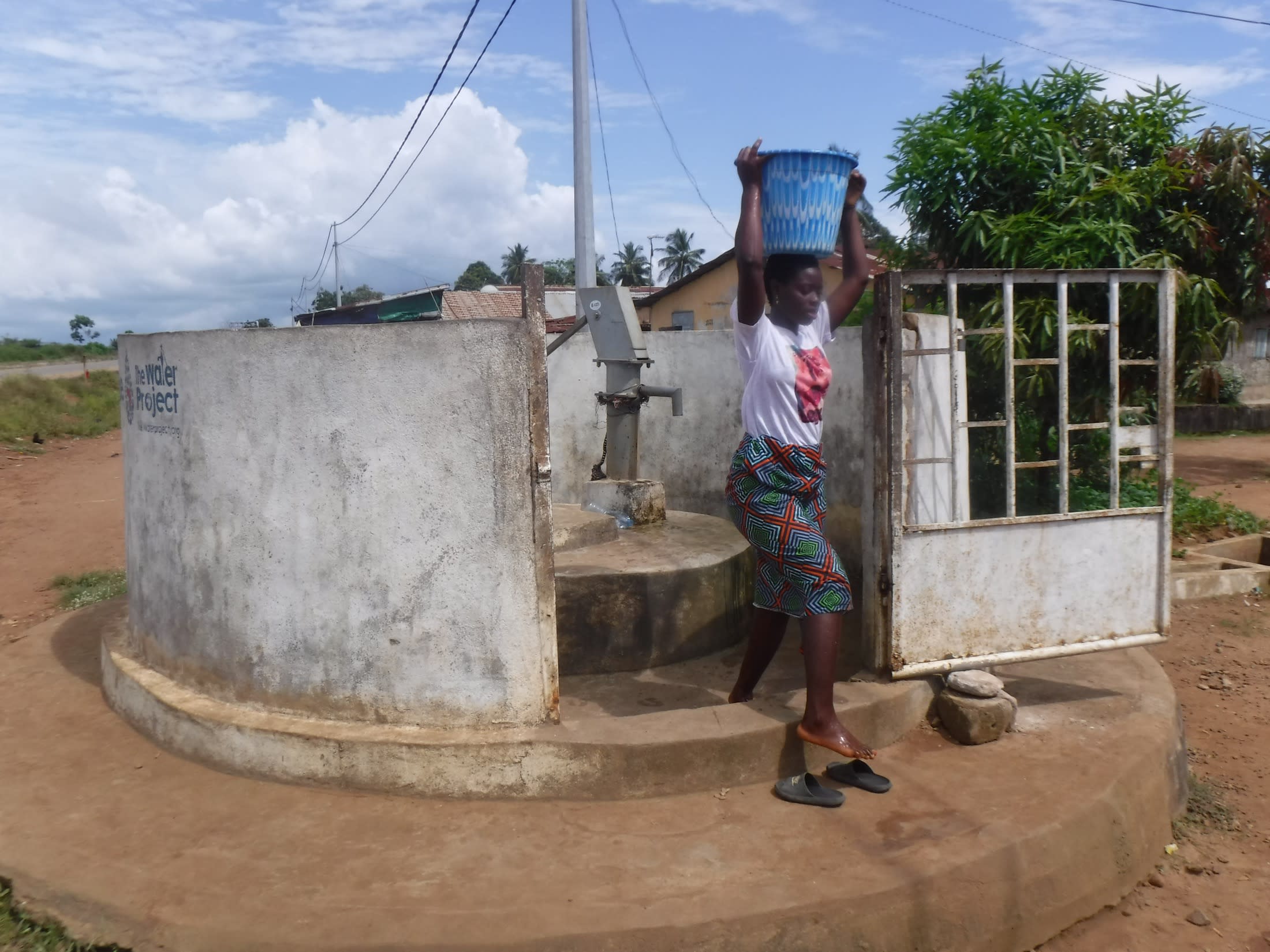This part of Masoila is locally known as Lion Rock Community. It is found near the major airport for Sierra Leone. The proximity of this community to the main Airport Ferry Road has attracted trading and social services.
Lion Rock Community is home to some 687 people. The population is predominantly made up of people who earn a living through petty trading. There are shops, mechanic centers, entertainment centers, and other institutions where people trade and work to make money. Masoila community stakeholders own a large chunk of the airport land, and many people have benefitted from employment quotas specifically for the children of the landowners. Some of the people here are involved in subsistence farming.
The primary well in Lion Rock does not produce enough water.
Our organization has monitored this well over the years, keeping a close eye on its functionality and the effects of global warming on the water supply. Hand-dug wells in the region, like this one, are experiencing challenges due to increasing seasonal drops in the water table. The seasonal changes have brought about many repairs, some minor, and some major. They also lead to inconsistent water access since it takes longer to fetch water when the water table is lower. That puts more pressure on the water point leading to more breakdowns as a result of the constant use.
"I feel sad. My children suffer a lot to bring water to the house every morning before leaving for school. This mostly leads them to be late for school. They cover a long distance to go in search of water, especially drinking water. They also go a long way to fetch from the open well water for domestic uses," said Town Chief Alimamy Shebora Yom Kamara.
The unreliable water source leads people to turn to the three open and unprotected hand-dug wells in the community. However, since they are not sealed, the open wells are all unsafe for drinking. People have to drop a dirty bucket into the open hole to collect the water. All sorts of contaminants can fall into the well when it is open, and the re-used buckets are not clean. This increases the risk of people contracting waterborne diseases after drinking water from one of the open wells.
Here’s what we’re going to do about it:
Well Rehabilitation
The well marked for this overhaul is dry for a few months every year and needs major work to supply adequate, clean water to the community year-round. Our team will remove the pump, and a hand auger will be lowered inside and powered by a drill team. This hand auger will allow the team to drill several meters deeper to hit a sufficient water column to ensure the well supplies water throughout all seasons.
As the team drills, the casing will be installed, transforming the bottom of this hand-dug well into a borehole. PVC piping will connect this lower system directly to the pump, a construction that we know will also improve the quality of water.
Once this plan is implemented, everyone within the community will have reliable access to safe drinking water, even through the dry months.
Hygiene and Sanitation Training
we will offer hygiene and sanitation training sessions for three days in a row.
After our visit, the hygiene and sanitation trainer decided it would be best to teach community members how to build a tippy tap (a hand-washing station built with a jerrycan, string, and sticks). They will use these tippy taps for handwashing demonstrations and will also teach about other tools like dish racks and the importance of properly penning in animals.
This training will also strengthen the water user committee that manages and maintains this well. They enforce proper behavior and report to us whenever they need our help solving a serious problem, like a pump breakdown.

 Borehole Well and Hand Pump
Borehole Well and Hand Pump

































